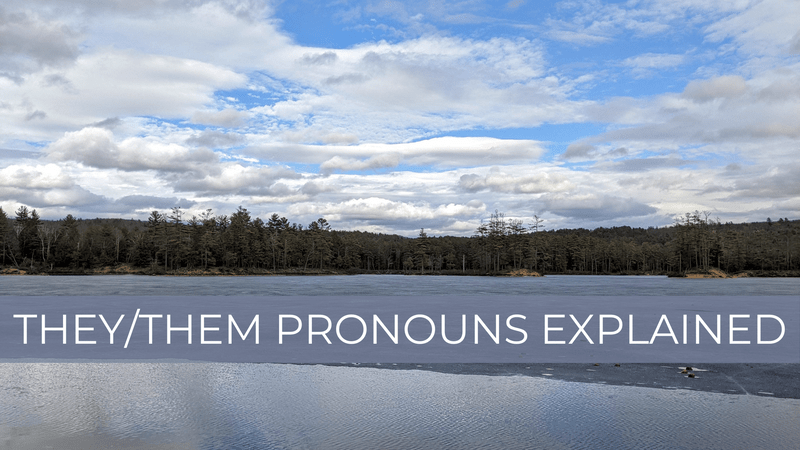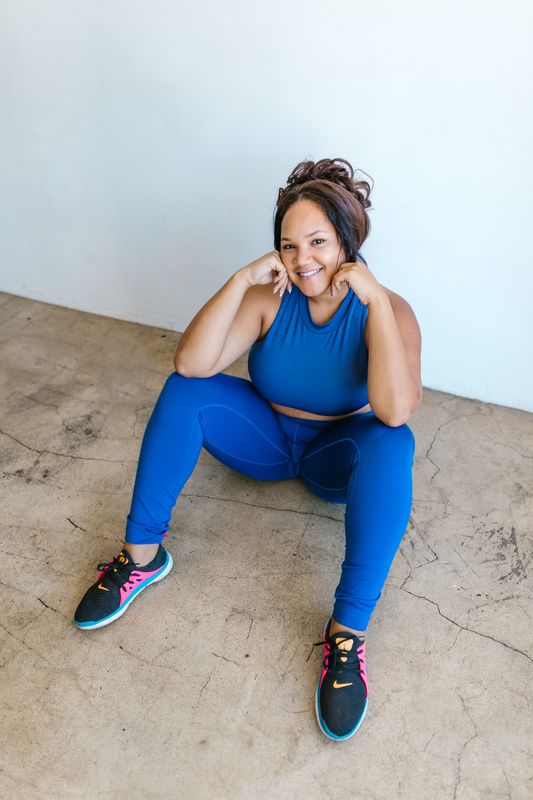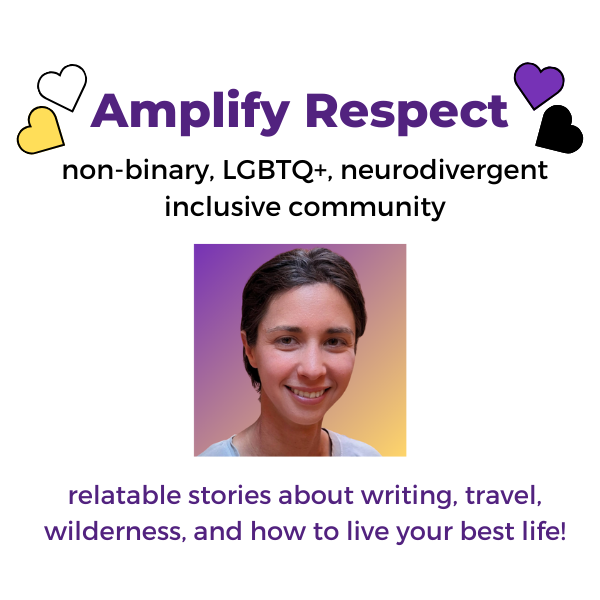Use they/them pronouns to refer to someone without gendered pronouns such as “he” or “she.” Instead of saying, “he did that,” say, “they did that.” It’s that simple, in theory. But you may have other questions about they/them pronouns. We will clarify it all here, in this post all about they/them pronouns, explained!
Hi, I’m Rey, a nonbinary writer! Please subscribe for more stories and resources:

“They are” vs. “they is”
Let’s cut to the chase here. “They are” is correct, even when you are talking about a single person.
Here are some more examples of how to use they/them pronouns correctly (and incorrectly):
| Wrong!! | Correct!! |
| They is going to let me know when they gets back. | They are going to let me know when they get back. |
| They’s team will work on the task. | Their team will work on the task. |
| Rey are going to the store, where they will buy food. | Rey is going to the store, where they will buy food. |
| Rey Katz, who identifies as a nonbinary person and prefers they/them pronouns, spoke to me about their work. | Rey Katz spoke to me about their work. |
You likely have a lot of intuition about what “sounds right” if you are a conversational English speaker. Trust your gut feeling about how to use “they” and “them,” and keep it simple without overthinking it.

Isn’t it confusing to not know how many people “they” refers to?
It’s so confusing. Almost as confusing as when you talk about four people who all use “she” pronouns. I mean, how can you tell who “she” is referring to? “She” could be Meg, Jo, Beth, or Amy—how would you know?
We use a lot of context clues when referring to different people using pronouns. The gender of a pronoun can be a powerful context clue, but it’s not the only one. When you’re referring to one or more people using “they,” other context clues would let your listener know who you are talking about. If it’s unclear who “they” would refer to, that’s a good place to specify the person’s name.

Why would someone want to use they/them pronouns?
It can feel very affirming to be referred to in a way that feels correct and acknowledges someone’s gender identity. Some people use they/them because she/her and he/him feel wrong, and they/them feels better. Pronouns are used so often when speaking to or about someone, that to hear the wrong gender pronoun used constantly, hour after hour, can be incredibly draining. Using the right pronouns for someone represents a baseline of speaking respectfully. When I’m in a space with people who use the correct pronouns for me, I feel more relaxed, seen, and able to do my best.
What if I get it wrong?
Everyone is going to get a pronoun wrong once in a while. It’s okay. The best thing to do in that situation is to briefly apologize, make a correction, and then move on (“he’ll show up later, oh, sorry, they will show up later”).
If you are regularly or intentionally using the wrong pronouns for someone you know, it’s likely your view of that person or their pronouns needs to change before you’ll get it right. You may not be accustomed to consciously considering what pronoun you use for someone. It may take intentional, habitual practice before you’re able to get it right.

Is it better to use gender-neutral language for everyone?
I think it’s better to use correct language for everyone, meaning that we respect the name and references they feel are right. Gender-neutral language is often not harmful, and is a good way to be inclusive, especially when speaking about unknown people, groups, and professions.
If a trans person uses binary pronouns (“he” or “she”), be careful to respect that and don’t substitute “they.” “They” is not a halfway measure towards the person’s pronoun, and can be misgendering in this case.
Some people use multiple pronouns. This can be described as “he/she/they,” “they/any,” “she/they,” etc. You can choose which pronoun to use out of this set, however, often the most desired pronoun is listed first. Some people prefer you to mix up the pronouns, using a variety instead of sticking with the same one. For example: “She enjoyed the movie so much they brought their best friend to see it too.”
Why is it so easy to refer to an unknown person as “they” but not my friend/family member/coworker?
Most of us complain about people, from time to time. When people complain, I’ve observed, the “they” pronouns come out in full force.
“They didn’t show up on time and now my pizza delivery is soggy because they couldn’t even keep the box upright. I wish they would be more reliable! I’m hungry and pissed off at them.”
Notice the comfortable, fluent even, use of “they”? Miraculous. But the thing is, we have this cultural connotation for “they” as an unknown single person. Perhaps even a disliked single person, someone who annoys us in a distant way, someone we vaguely complain about to our friends, family, and customer service.
“They” has a number of different meanings – two people, an unknown/disliked person, or, a person you know and love who uses gender-neutral pronouns. That last one is important. Using “they” to refer to a person can be respectful, loving, descriptive, and the best way to speak about someone you care about.
One way to practice this use of “they” pronouns is to say affirming things about someone you know who uses they/them pronouns. “They’re great.” “I like them.” “They have cool pronouns.” This practices the words, and also the emotions.
They/them pronouns explained
Hope this was a helpful overview of they/them pronouns! For more information on gender-neutral pronouns, check out:

